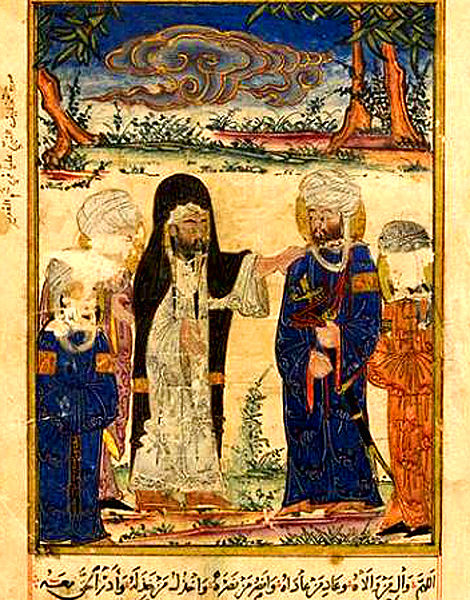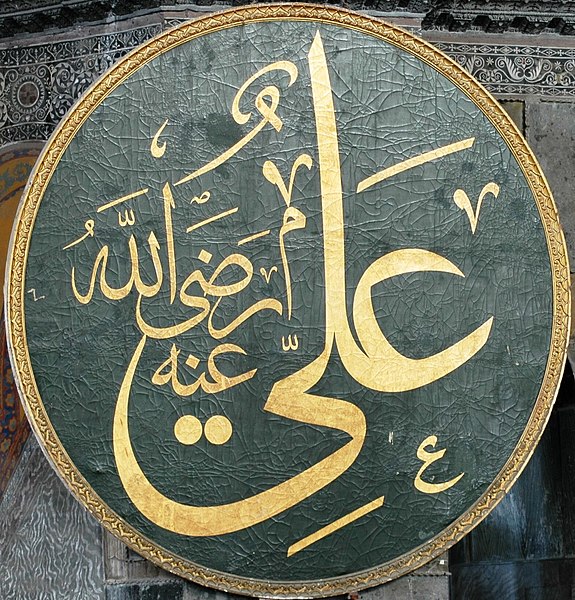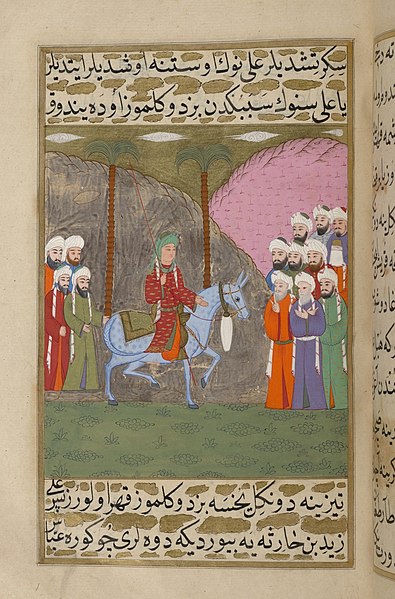Nahj al-balāgha is the best-known collection of sermons, letters, and sayings attributed to Ali ibn Abi Talib, the fourth Rashidun caliph, the first Shia imam, and the cousin and son-in-law of the Islamic prophet Muhammad. The compilation of the book is often credited to Sharif al-Radi, a prominent Shia scholar. Known for its moral aphorisms and eloquent content, Nahj al-balagha is widely studied in the Islamic world and has considerably influenced the Arabic literature and rhetoric. In view of its sometimes sensitive content, the authenticity of the book has long been a subject of polemic debates, though recent academic research suggests that most of its contents can indeed be attributed to Ali by tracking the texts in sources that predate al-Radi.
Nahj al-balagha
The investiture of Ali at the Ghadir Khumm, an Ilkhanid manuscript illustration
The election of Uthman, from Tarikhnama by the tenth-century historian Abu Ali Bal'ami
Ali ibn Abi Talib was the cousin and son-in-law of the Islamic prophet Muhammad, and was the fourth Rashidun caliph who ruled from 656 to 661, as well as the first Shia imam. Born to Abu Talib ibn Abd al-Muttalib and Fatima bint Asad, a young Ali was raised by his elder cousin Muhammad and was among the first to accept his teachings.
Calligraphic panel bearing Ali's name at the Hagia Sophia
Gouache illustration of Ali (centre) and his sons, Hasan and Husayn, 1838, by an unknown painter
Ali in an illustrated copy of the Turkish epic Siyer-i nebi
Muhammad and Ali, a folio from the fifteenth century Iranian epic Khavarannama







